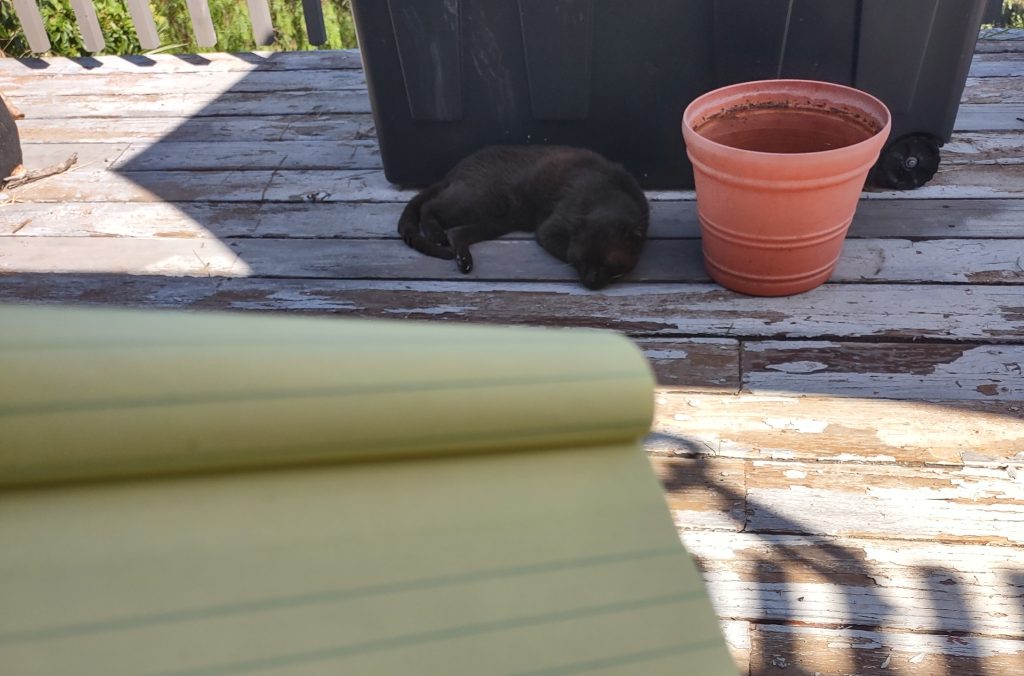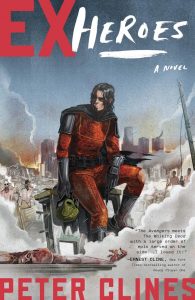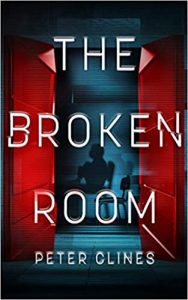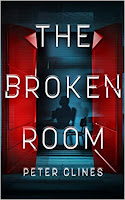How did I miss blog posts for all of September? What the hell? And how is it already October?
Well, okay… September was a bit of chaos for me. I was working on that Rashomon idea I mentioned last time, but I couldn’t quite get it to work the way I wanted it to, and it’s a delicate topic so I really wanted to stick the landing on that one. Then there was some work chaos and life chaos and then more work chaos (but this time on the better end of things).
Anyway, I’ve been working through all of this, but a few things slipped through the cracks. And this was one of the things. Sorry about that.
Of course, I just saw another author I’m acquainted with mention how she hasn’t sent out a newsletter in over a year. And another one I know writes more newsletters in a month that I do newsletters and blog post combined. And all of that on top of all of us juggling a few different writing projects.
It all comes down to what you can do, and what system lets you do it.
Which, hey, is a cool thing to talk about.
Look, even in our crumbling age of social media, there’s a lot of folks out there offering writing advice. And probably even more who—one way or another—are setting examples. Posting about today’s word count or their method for blocking out action scenes or plotting character arcs or whatever. And on one level, this is great. It’s wonderful to get a peek behind the curtain and get a glimpse of the artist’s process, right? I mean, that’s pretty much what I try to do here with the ranty writing blog and my newsletter.
At the same time, though…
I think it’s not always made clear that my process—the schedules and tricks and methods that work for me—is probably not going to be your process. Sometimes it seems like I’m saying everybody has to start the day with a two mile jog or three cups of coffee and if you haven’t written four pages before lunch, well, I guess it’s sort of cute that you treat this as a hobby. I mean, I’m successful and it’s what I do, but I mean, sure, do whatever you want….
Truth is, we’re all individual people with our own brain chemistries and life-situations. And we’re writing our own individual books. Every one of them is a little different and requiring a slightly different approach, a new angle, more of this, less of that. As I’ve said here many, many times before, what works for me won’t always work for you. And it definitely won’t work for that guy. He’s doing his own thing in his own way and… look, it’s his thing. He’s happy. We can leave him alone over there.
A big part of writing is figuring out how you like to write. What level of outlining works best for you. What level of output. What timeframe. What time of day. What location. What environment. What’s going to let you write the most, the best, the most painlessly. And it’s all unique. For each of us, and for each project.
I wrote one book, –14-, with almost no outline. I scribbled down a lot my pages late at night while my partner was conked out in the other room. But I wrote a good chunk of Paradox Bound in a coffee shop with my pods in. And big swaths of my current book– TOS if you subscribe to the newsletter—were written out on the deck in a yellow pad with a cold drink, a huge outline, and a grumpy black cat glaring at me.

But a year or two back I tried to do a comic pitch. And I’d never done one before, so I talked to a friend with a lot of comics experience about how they usually did it and followed all their tips and advice. But their method wasn’t really… me. My pitch ended up being a really stilted, awkward thing that didn’t get across half of the excitement and creepiness and awe I wanted it to. And fortunately the editor I sent it to was pretty good-natured and we had a laugh at a con later about how it wasn’t the worst comic pitch they’d ever gotten…
(fun fact– said editor later did a series of posts about what they liked to see in a comics pitch and it was much closer to what I probably would’ve done on my own if I hadn’t asked my friend how they did it)
What I’m trying to say is, every writer has their own way of doing things. How they start the day, the tricks they use to stay motivated, their daily goals, their overall strategies. Don’t get obsessed with how other people do it. Figure out how you’re going to do it. Which method works best for you? What tricks and schedules let you do the most, best work? Because that’s a huge part of getting good at this whole writing thing. Figuring out what works for you. We all do it. We stumble across methods and tips and ideas, try them out for a while, and then decide which ones work for us and which ones don’t.
And yeah… it’s going to take time to figure this out. Maybe lots of time. Sorry. There’s just no way around it. It’s not like trying on a shirt where I can immediately go “whoa, this is waaaaay too tight across my broad, muscular chest.” Think of it more like dating. Sometimes, yeah, it’s obvious ten minutes into the first date this isn’t a good match. But sometimes it might take two dates or three weeks or four months to realize what works doesn’t outweigh what, well, doesn’t work and this just isn’t sustainable.
But the plus side is you’ve still been writing and you’ve still learned something from this. And that’s something you can carry over to the next thing you work on. And the next handful of tips you happen across.
So don’t be worried about trying something new. And don’t be afraid to say “this isn’t working for me,” no matter who said it works for them. Find what works for you.
Next time, I’d like to talk about driving waaaaay past the speed limit.
Unless there’s something different you’d like me to blather on about? The comments section is so lonely…
Until then, go write.









